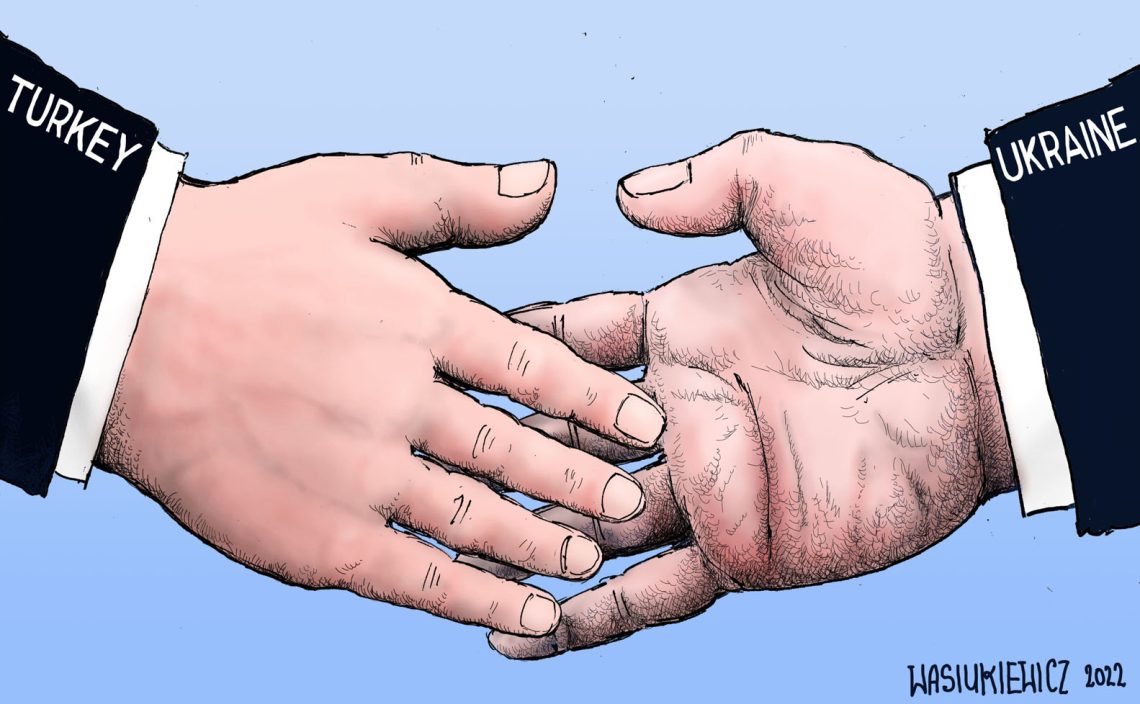Turkey: An important neighbor of Ukraine
Turkey’s vital interests in the region mean it would be an honest broker in the effort to de-escalate tensions between Moscow and Kyiv.

Tensions between the world’s great powers are rising. Presidents Xi Jinping and Vladimir Putin met in Beijing last week to send a clear signal that their countries would take a unified front against what they allege is antagonism from the West, mainly the United States.
Unfortunately, European countries and Brussels are playing an insignificant role in this power competition, evidenced by Moscow going over their heads and negotiating solely with Washington over the Ukraine crisis.
Ukraine and Taiwan share the awful fate of being objects in the intense dispute between some of the world’s most powerful countries. The great powers are unlikely to make their interests a priority – this goes especially for Ukraine.
The U.S. has raised the alarm over Russia’s deployment of troops around Ukraine and is threatening sanctions if Russia attacks. Whether or not one agrees with Washington’s methods – especially creating panic about an imminent Russian attack – it is certainly important to show support for Kyiv. On that matter, Western Europe has been unconvincing, to say the least.
Russia, on the other hand, wants the U.S. and NATO to make big concessions, but has no intention of making a full-scale invasion of Ukraine. At issue is not only the status of Ukraine, but the security of the Russian Federation’s entire western flank.
This is dangerous for Central Europe, which cannot count on prudent, firm and reliable positions from Western European capitals. The same applies for the Black Sea region.
The consequences are especially undesirable for Ukraine, which could see even more instability in the Donbas and Mariupol regions. The heightened tensions have caused panic in the country, hampering crucial economic reforms and administrative streamlining.
A role for Ankara
Turkey is an important regional power. It has long been geopolitical rivals with Russia in the Black Sea region, the Caucasus, the Balkans and the Middle East. It is also a staunch, longtime member of NATO, though recently its ties with the rest of the alliance have been strained.
The tensions are widely due to diverging interests. Turkey is located in an extremely challenging geostrategic location, and must defend its own interests, which are not always strictly aligned with NATO’s.
What is in Turkey’s vital interest is a strong, independent Ukraine to balance Russia’s power in the Black Sea region. Already, Ankara has made clear that its arms sales to Ukraine will continue, and recently inked a deal for the joint production of drones. Turkey has a highly developed defense industry and regularly engages in technological exchange with Ukraine.
Moreover, the 1936 Montreux Convention gives Turkey control of the Bosporus and Dardanelles Straits, making it the guardian of naval access to the Black Sea. An armed conflict in the Sea would put huge stress on that international agreement, which Turkey sees as vital to its interests.
Though the two are not friends, President Putin respects Turkish President Recep Tayyip Erdogan, Turkey as a country, and its defense forces. Moscow and Ankara communicate regularly to keep their differences from escalating into bigger conflicts. President Erdogan has offered to mediate between Kyiv and Moscow in the current crisis. Both sides seem to be open to this option.
Both Ukraine and Moscow say they are adhering to the Minsk Protocol, meant to diffuse the conflict in the Donbas region. However, their interpretations of the agreement diverge, and transgressions occur regularly. Russia refuses to admit any blame.
Ankara has a deep understanding of the region and the interests of the various players. If Turkey were to mediate, it could benefit Ukraine, keeping it from becoming a geopolitical football that is continually kicked around by the global powers. It could also help to remove some of the exaggerated emotion in the overall security discussion between Moscow and the West.
